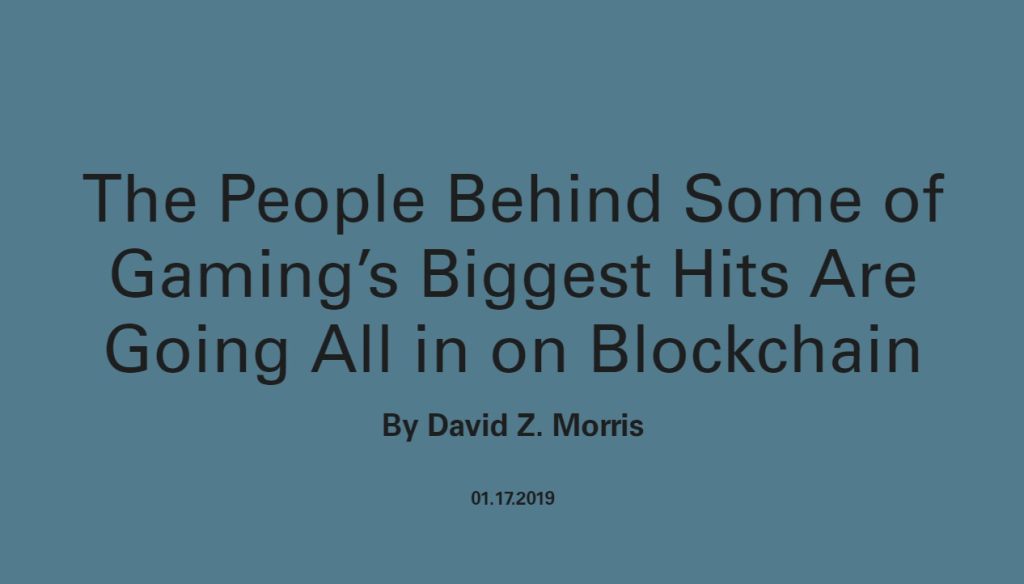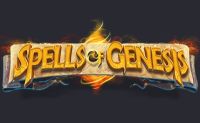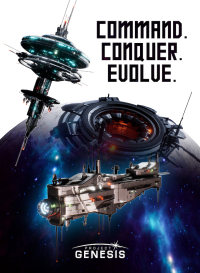
Planet Digital Partners has a certain hypnotic circularity: The new game investment company, started by a clutch of industry overachievers, will use blockchain to raise funds to build games that use blockchain. (Yo dawg, I heard you like blockchain, so I . . . )
Planet Digital officially launches today, seeking $38 million in funding through a Security Token Offering, or STO. As we’ve touched on recently, 2019 is expected to be a big year for security tokens. They’re akin to stocks managed using blockchain, but offering investors much more of a known quantity than Initial Coin Offerings (ICOs), which don’t come with any legal claim on a company or its revenues.
Buyers of the Planet Digital STO, by contrast, will get a significant share of revenue generated by the company. And at least some of those games will use blockchain tech, which founder and CEO Steve Grossman says his team has been examining for more than a year. 2019 is also expected to be a big year for blockchain gaming, which can make games more interoperable and, says Grossman, increase the trustworthiness of marketplaces for in-game items.
The decades of experience and notable accomplishments of Planet Digital’s leadership team make its launch a meaningful endorsement of that potential. Grossman has been an investor in and publisher of high-profile games for nearly 20 years, and will bring to Planet Digital a portfolio of recognizable franchises, including Cooking Mama. Grossman also has one particularly remarkable claim to video game history: He was an organizer of the 1990 Nintendo World Championships, a national gaming competition that presaged the rise of eSports.
Planet Digital’s Board of Directors will include Kelly Sumner, founding partner and former CEO of Grand Theft Auto publisher Take-Two Interactive, and former CEO of RedOctane, which published the smash hit Guitar Hero. Chris Deering, former president of Sony PlayStation’s European division, is attached as an advisor. As an investment firm, Planet Digital will work with studios to build actual games. It has announced Saber Interactive, which has worked on the Halo and Quake franchises, as a launch partner—though Grossman isn’t ready to talk specific projects.
Established brands that Grossman is bringing to Planet Digital should form a solid foundation for the firm. In addition to Cooking Mama, Grossman own the rights to Cabela’s The Hunt and Bass Pro Shops: The Strike. Grossman says the three brands have generated more than $300 million in sales between them. On top of its game-industry cred, “We’ve also got some pretty interesting blockchain folks on our team,” says Grossman. One interesting idea Grossman floats is a fishing game that’s blockchain-backed, making its fish a provably finite resource that players compete for head-to-head. “By beating the crap out of me on the blockchain,” Grossman says, “You’d be able to steal all my stuff.”
Admittedly, Planet Digital’s launch franchises aren’t exactly Call of Duty, but Grossman says his exact interest is in funding the mid-size games increasingly marginalized by the blockbuster mentality among the game industry’s biggest players. That said, The Strike and The Hunt were both recently re-released for the Nintendo Switch, and a major element of the Planet Digital pitch is the team’s experience getting games onto consoles, where returns are generally higher than on PC. (Sony recently approved the first Playstation 4 game planned to use blockchain-backed assets).
Investors would stand to seriously benefit from those properties, with holders of Planet Digital’s Rocket Token (RKT) collecting 80 percent of the company’s net profits until they recoup their investment, 40 percent of net after that, and five percent of sequel revenue. The token is being built using Ethereum’s ERC-20 standard by the STO advisory firm seriesOne. (We’ll be keeping an eye on exactly how issuance, custody, dividends, and other nitty-gritty elements of the process work.)
Notably, Grossman says the token and purchasing processes will comply with all relevant securities and financial regulation, including limiting the offering to accredited investors in the U.S., and keeping careful control of how the tokens move. Those tight controls highlight one serious remaining question about security tokens as a concept: How much benefit do they really offer over existing securities infrastructure, once you take away the free-wheeling, borderless nature of cryptocurrency?
It’s truly notable that a project boasting such a seasoned staff would take the STO plunge despite such uncertainty, and double down on their risk by exploring blockchain gaming. How Planet Digital navigates both of those new frontiers could very well help define blockchain’s fate in 2019, and we’re excited to watch their journey.




![[JBB.ONE신게임 특집 탐방 보도] 가득 불타는 턴제RPG <Crypto Sword & Magic> ---월간 활동 게이머가 70만 명을 넘은 게임이 블록체인에 왔다!](https://www.jbb.one/f/dynamic/img/3853014baf0b4cb2938f82aefdbc0cba.jpg!sss)


![[JBB.ONE 신게임 보도]< Cipher Cascade> 관련된 더 많은 내용을 가져 드리겠습니다!](https://www.jbb.one/f/dynamic/img/d65e572cec2446dcb2ace1a104abc991.jpg!sss)
